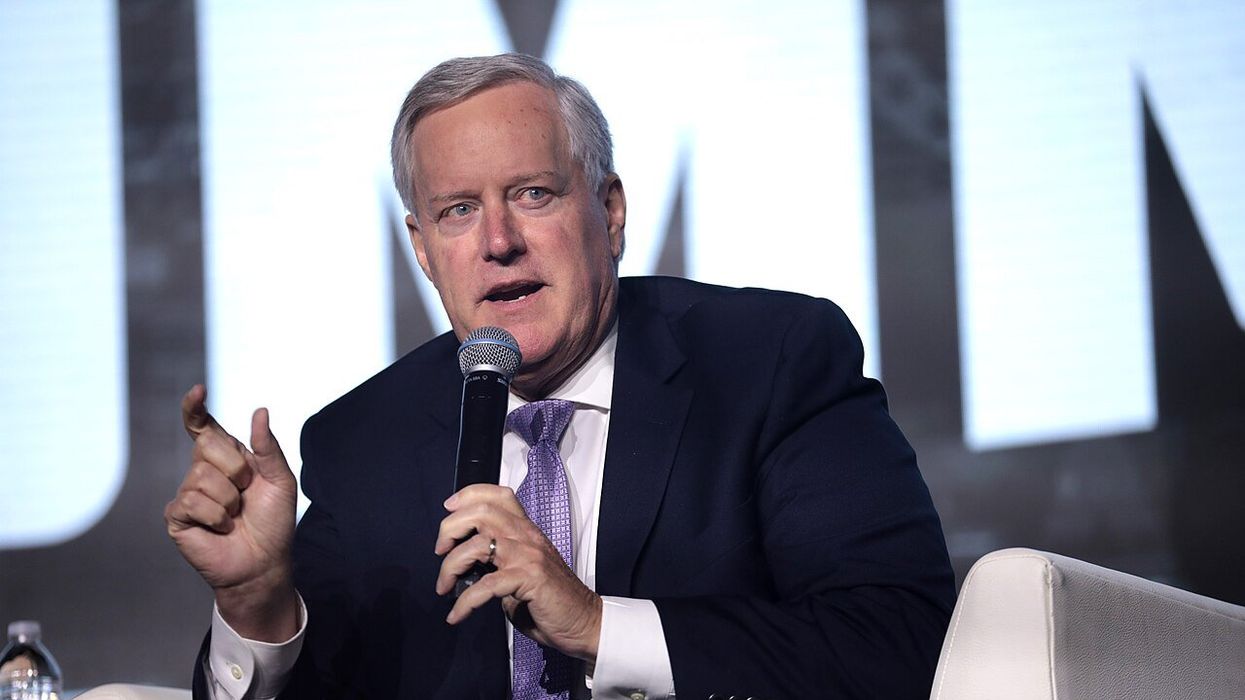Legal experts: Mark Meadows’ testimony may have unintentionally doomed Trump’s Georgia defense

August 30, 2023 | 06:53AM ETTrump

Editor's note: an earlier version of this article stated that Georgia Gov. Brian Kemp would be able to pardon Mark Meadows if he were convicted in Fulton County DA Fani Willis' criminal case. But in Georgia, the power to grant pardons rests outside the governor's office. Kemp would not have the power to grant such a pardon.
Former White House Chief of Staff Mark Meadows, one of Donald Trump's 18 co-defendants in Fulton County District Attorney Fani Willis' 2020 election case, is trying to get his prosecution moved from the State of Georgia to the federal courts. It isn't hard to see why: a future Republican president — be it Trump or someone else — would be able to grant him a pardon if he is convicted on federal charges.
If Meadows is convicted by a State of Georgia jury, however, a pardon would need to come from Georgia's government — not the federal government. And it could not come from Gov. Brian Kemp's office, as governors do not have the power to grant pardons under Georgia law.
POLL: Should Trump be allowed to hold office again?
Meadows testified in a Georgia courtroom on Monday, August 28, insisting that he was merely doing his job as White House chief of staff in late 2020/early 2021 and did nothing wrong.
In an article published two days later, the Daily Beast's Jose Pagliery stresses that Meadows' testimony could be bad for Trump.
"Meadows' entire defense rests upon the idea that he was just doing his job, that his efforts to connect Trump with people who would help to overturn the election was at the direction of the former president himself," Pagliery explains. "It's precisely that point which Fulton County DA Fani Willis is trying to prove: that Trump was at the center of this entire criminal conspiracy…. Even if that wasn't Meadows' intent, his lengthy testimony Monday may help Willis illustrate that argument."
Peter Odom, a former Fulton County prosecutor, told the Beast, "He now cannot ever say, 'I wasn’t doing this for the president, I was acting on my own.'"
The Beast also interviewed Ronald Carlson, a University of Georgia law professor. Carlson explained why the legal term "respondeat superior" is relevant to Meadows' August 28 testimony.
Carlson told the Beast, "There's an ancient legal doctrine: respondeat superior. It's Latin for ‘Let the master answer,’” which means that a boss is ultimately responsible if he 'directs the agent to do something.'"
READ MORE: Fani Willis calls for October trial in Trump Fulton County case
Read the Daily Beast's full report at this link (subscription required).